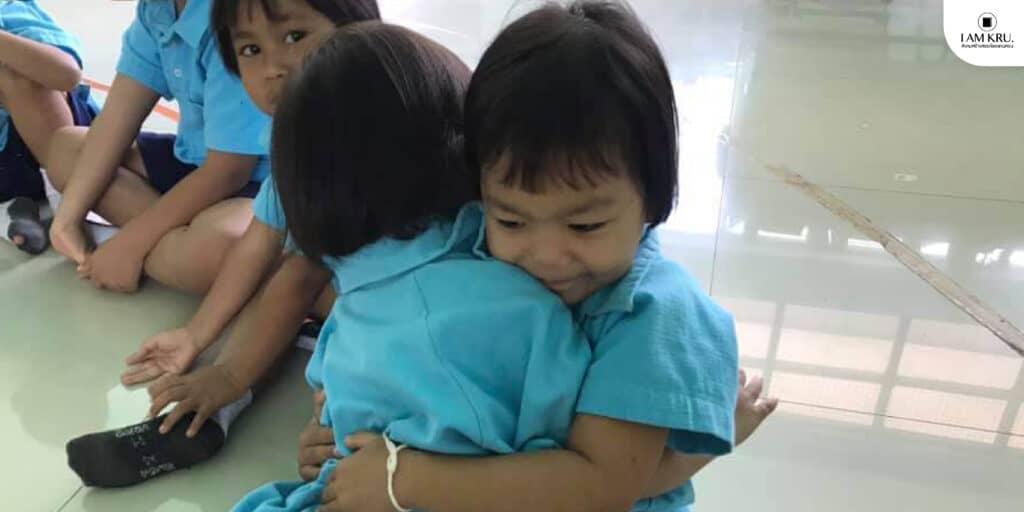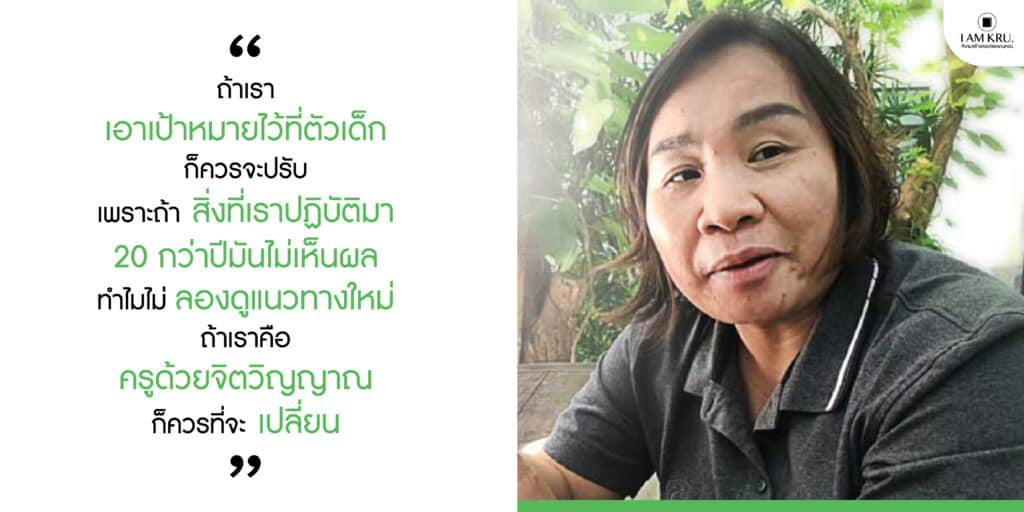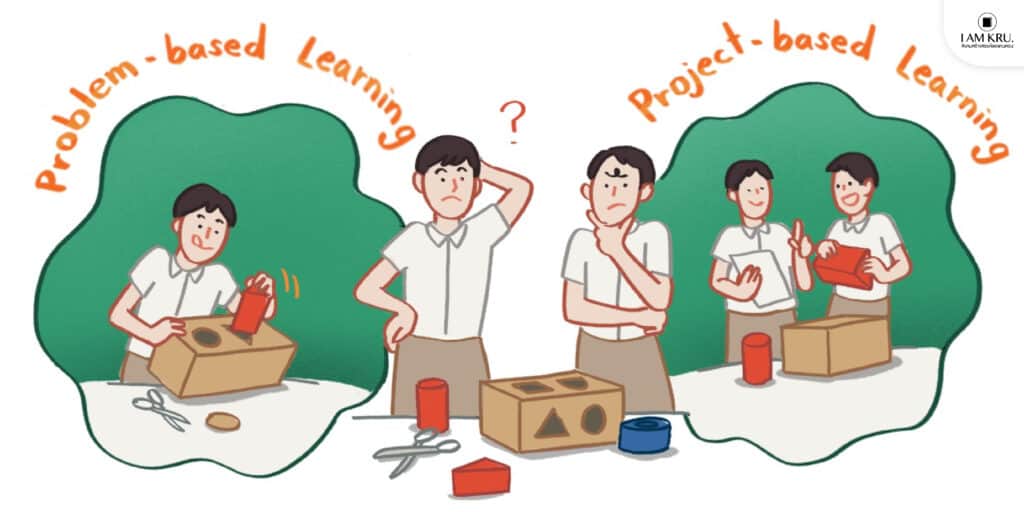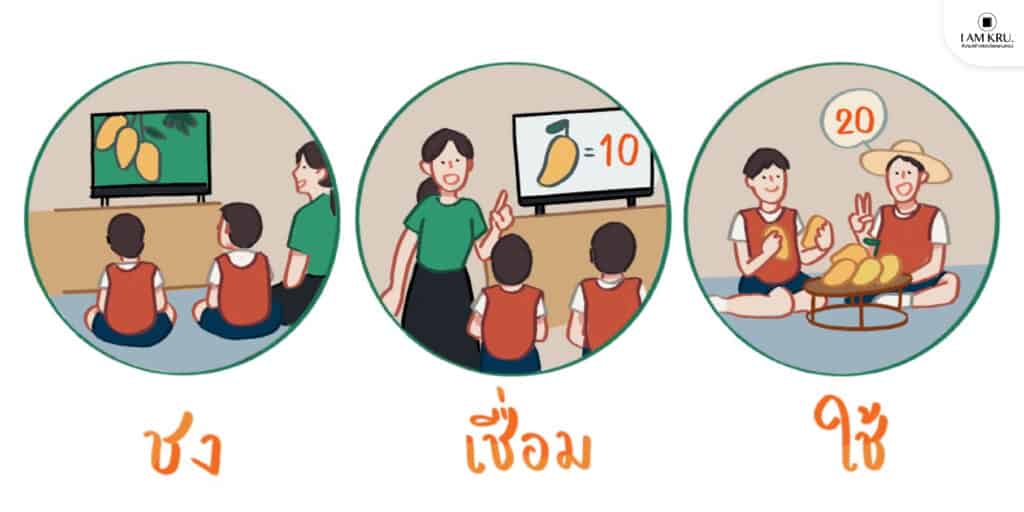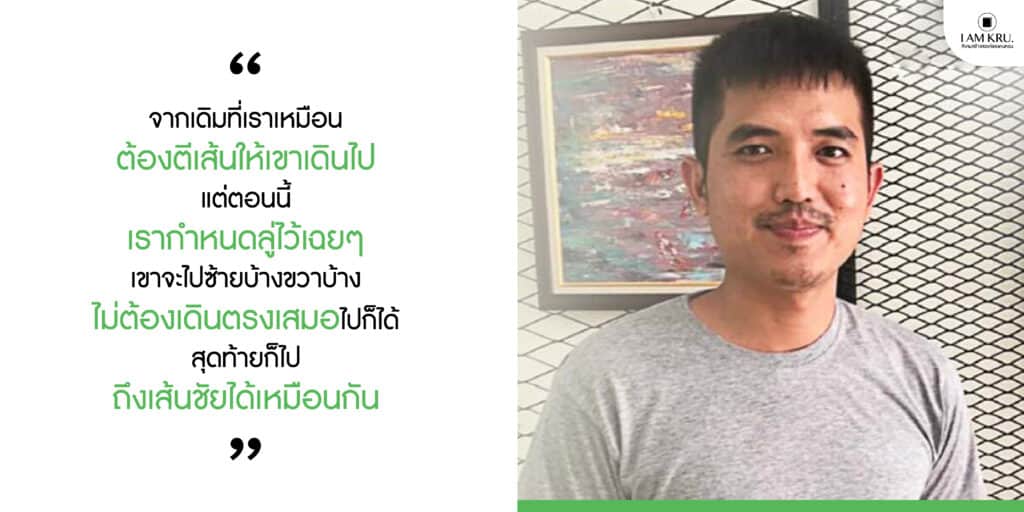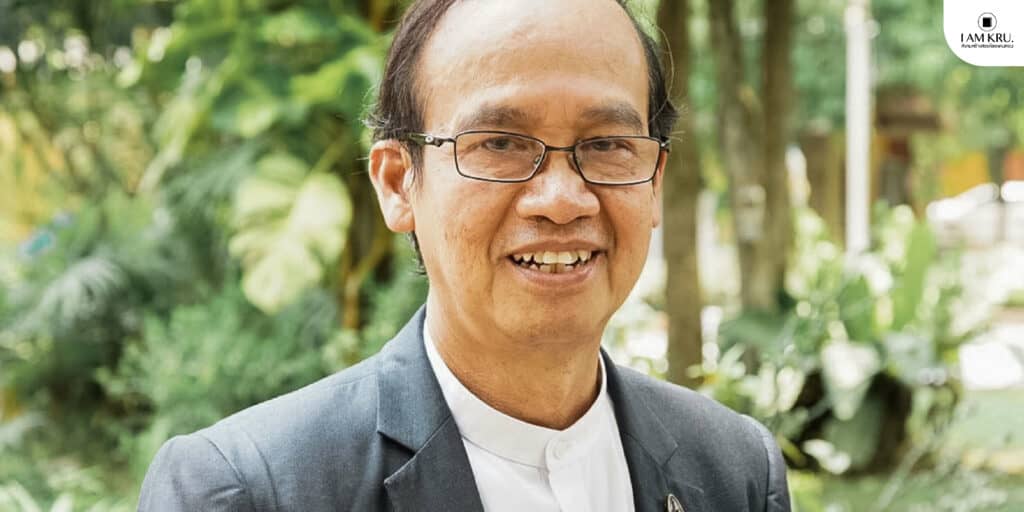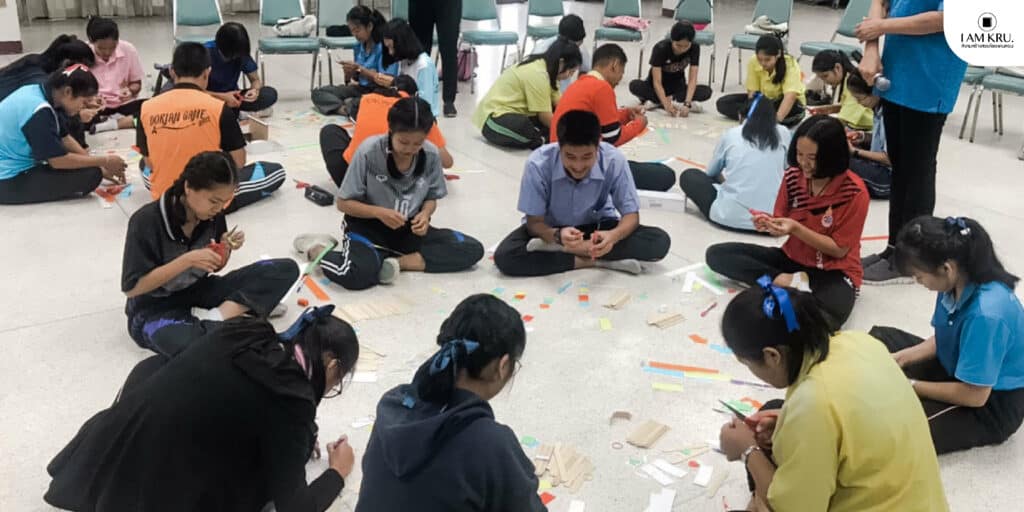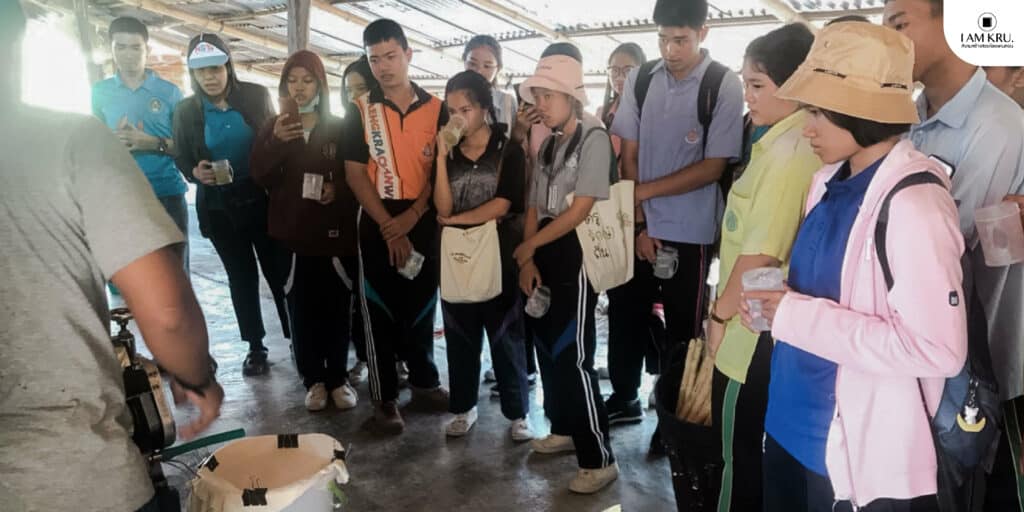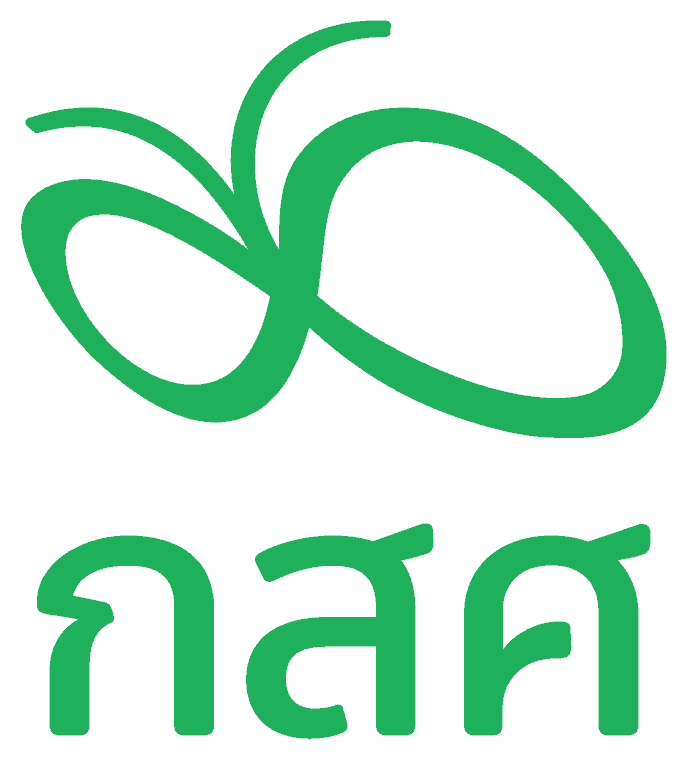Technique to handle Internet Age: “Remodel schools, Reshape teachers, Reform education”
“Online learning is not to replace offline learning. Rather, they turn into a hybrid teaching. Learning is for everyone. Therefore, it is necessary for people to be able to learn everywhere and every chance”
said Professor Decharut Sukkumnoed, an economic scholar and professor of Agricultural and Resource Economics, Faculty of Economics, Kasetsart University.
How to make online learning satisfying, effective and similar to the actual classroom for students?
Equitable Education Fund (EEF) and The 101, a creative knowledge media, have invited people to a seminar by educators, professors and experts over the discussion concerning educational management while teachers and students are at a distance.
The beginning of 2021 witnessed a period when Thailand encountered the second phase of COVID-19 crisis. Schools, as a result, are obliged to provide online teaching again. The problem occurring in the first phase of COVID-19 was the lack of resources and preparations, causing reduction in terms of students’ learning opportunities. For this reason, EEF and The101 then decided to hold an online seminar through Facebook under the topic “Remodel Schools, Reshape Teachers, Reform Education” joined by educators, professors, and experts in the discussion to exchange handling strategies towards effects of COVID-19 crisis.
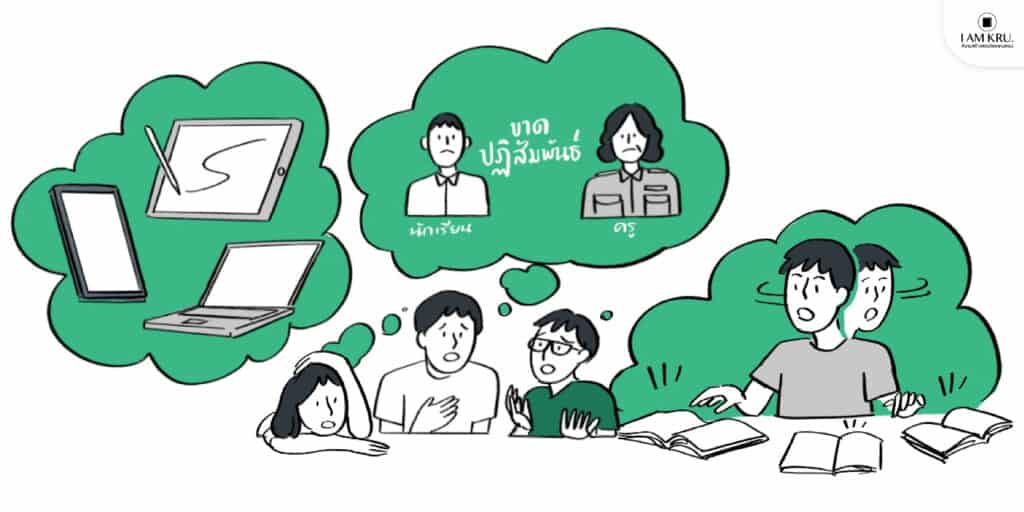
More than lectures is “taking actions” on solving the “inequality”
Professor Decharut Sukkumnoed, an economic scholar, brought up the Thai education problems in 3 broad perspectives as follow
- Educational inequality – People do not basically recognize educational inequality. The spread of COVID-19 raises people’s awareness of the increasing inequality in education. For example, the ability to access technology and online devices and the upcoming economic crisis which will leave many students out of education.
- The lack of interactions between teachers and students – This is caused by the fact that there is the absence of face to face meetings.
- The lack of a learning design that is suitable for learners – There is no evidence of a proper learning method for learners today.
Professor Decharut claimed that online learning nowadays is still an aspect of normal classroom teaching where teachers solely give lectures. In fact, there are alternative teaching methods for teachers to put into effect. Displaying nature documentaries on screen and building experiences through online games and polls, for instance. What to concentrate on is the way to keep students interested and search for learnings that are not merely a general classroom teaching. In response, “interactions” between teachers and students should be involved, and online learning is not to replace offline learning. Rather, they turn into a hybrid teaching. Learning is for everyone. Therefore, it is necessary for people to be able to learn everywhere and at every chance.
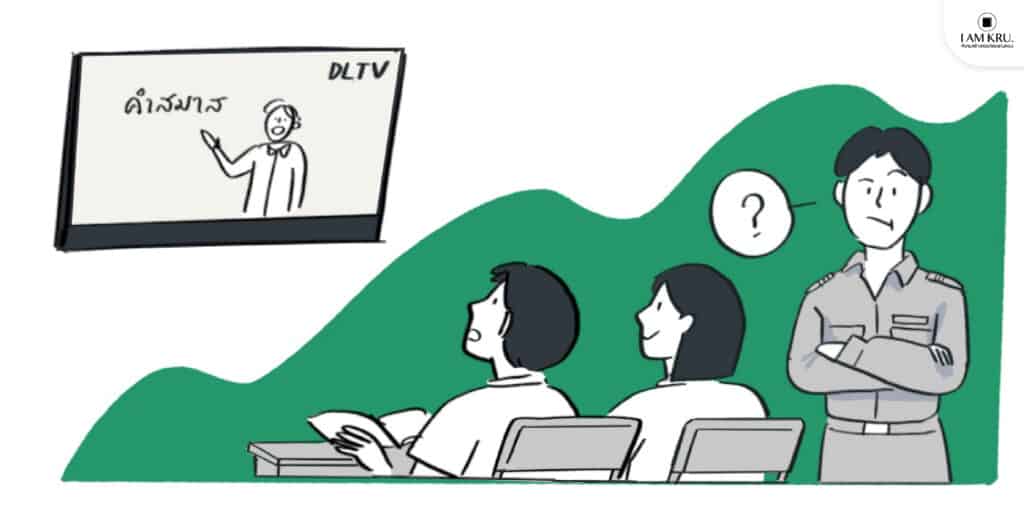
How do teachers handle online classrooms based on actual experiences?
Many teachers are eager to share their own experiences in this seminar. For instance, Teacher Phakin Nimmannorrawong, a social studies teacher of Kamnoetvidya Science Academy School(KVIS) mentioned a handling plan of KVIS which is to minimize the number of students coming to school in order to restrict and reduce the risk of getting infected. Also, the plan covers an attempt to implement online learning which will commence next week. KVIS has been preparing various handling schemes for teachers and students to manage learning smoothly. However, the most difficult part is how much teachers can follow up on the plan.
“The circumstances that have occurred make us rethink what education is. If there is no answer to the question or if we cannot provide a good answer, we will not be able to handle the situation. For example, if learning is classroom learning, we are not moving forward. But if the answer becomes something else, it will lead to a number of changes in learning patterns. Besides, a big obstacle is we have to think whether it is necessary to have teachers in all students’ ways of learning and what students can learn without having teachers or which role teachers should play.”
“Speaking of ‘the world after COVID-19’, we have to know beforehand when it will be. In case, if it is in the next 2 years, currently we know how we should manage the learning and teaching method and which plan to put into practice. Nevertheless, it is impossible to claim which model fits the most as no one knows students better than teachers. What matters is that teachers should discuss with students and parents. Also, managing online teaching is a new experience for everyone. If we say we cannot do it then it is over. But if we say we can, then we might have chances awaiting us. Overall, not only teachers who are responsible for this, but also the policymakers who must be flexible, even the colleges that teach and produce teachers must be the first to modify before others.”
Dr. Supachok Piyasan, school director of Ban Huairaisamakkee school, located in Chiang Rai province, is one of the educational personnel who participated in the seminar. Dr. Supachok stated Ban Huairaisamakkee school is not prepared for online teaching. Not all students can access online learning. Some can only participate in on-air learning or TV learning. Some have to study offline as they lack necessary devices. Last week, school directors and teachers discussed how to maximize learning efficiency, how to best drive the policies and take practical actions to create the most effective learning. High school students can study online mostly. The other group that cannot access online sources has to study through Distance Learning Television (DLTV). Moreover, learning from the community and local wisdom in terms of on-site self study is another way of learning.
TV learning, nonetheless, prevents students from asking questions or having someone to explain the lesson. This, in turn, is an important obstacle because some households have limited space and some parents are occupied or have no ability to teach their children. Therefore, Dr. Supachok viewed that as a golden opportunity to produce innovations to accommodate students. The concern is which content teachers would choose and which method makes online teaching the most effective. In the future, if the tension of lockdown is alleviated by which students are allowed to come back to school, teachers can best demonstrate and create more learning and teaching methods on their own.
Learning innovations
Dr. Udom Wongsingha, director of the Teachers and Schools development office of Equitable Education Fund (EEF) said that the role of EEF is to build on equality and reduce inequality. Since there are several dimensions of inequality towards the COVID-19 situation, it makes EEF realize the growing tension of inequality. EEF then puts a great amount of effort into creating new innovations, initiating different projects and revising each project that has been conducted in case alterations are needed. For example, the Teacher School Quality Program (TSQP) on how 290 schools under the project should adjust themselves. Furthermore, there is a development project of small-sized schools in remote areas that are in desperate need of help. It therefore comes to a point of figuring out how to develop in terms of this situation.
“Based on a circumstance that happened in Brunei, they have a home-learning package system for parents and children to join each other in cases of at-home activities. They have also prepared the environment to handle when the next semester starts, including seat arrangement and the way to enter school. Teachers are sectioned into 2 groups. The first group works 2 weeks at school and takes a break for 2 weeks to work on-site to help provide advice to students in the area. Lastly, EEF needs to analyze from the beginning. As a result, it can be concluded that we do not have to run after technology. Rather, we focus on learning.” said Dr. Udom
May Sripatanaskul, CEO and founder of LUKKID and translator of a book called “designing your life” stated solutions to educational problems should begin with looking at the context of different problems, although classroom teaching may be the main form. A new question must be set up for new challenges that no one has the perception of the result before taking action. All sections must come together for significant attempts and experiments. In terms of May’s idea of technology, it is quite similar to Dr. Udom’s by which it is not essential to follow every step of technology.
“Even though integrating technology with education is helpful, technology sometimes is not crucial in all situations. By which, a manual system can serve better for a specific purpose. We do not have only one plan to be of use in every situation. The chance we get to endeavor is a crucial matter. We should begin building a community where teachers can discuss problems they face and how to solve them, which is a kind of knowledge exchange.”
This seminar reckons a number of notions to educational personnel considerably. Teachers of various schools can crystallize how to commence solving problems or develop how students learn. As a matter of fact, EEF does not have a fixed scheme for all schools to work along one another. Instead, teachers will have to decide the method and adjustment by themselves. Importantly, exchanging knowledge among sections as such this seminar ought to be constantly held, because educational problems are vital affairs. Additionally, there can be unplanned circumstances in the future that all sections must cooperate to maintain a good and happy education for Thai students consecutively.
636
Writer

- เอื้อการย์ โรจนจิรไพศาล (มะแม้ว)
- นักเขียนผู้หลงรักการผจญภัยในเมือง ปรัชญาในชีวิตจริง และการไป Cafe Hopping ทั่วทุกมุมเมือง
